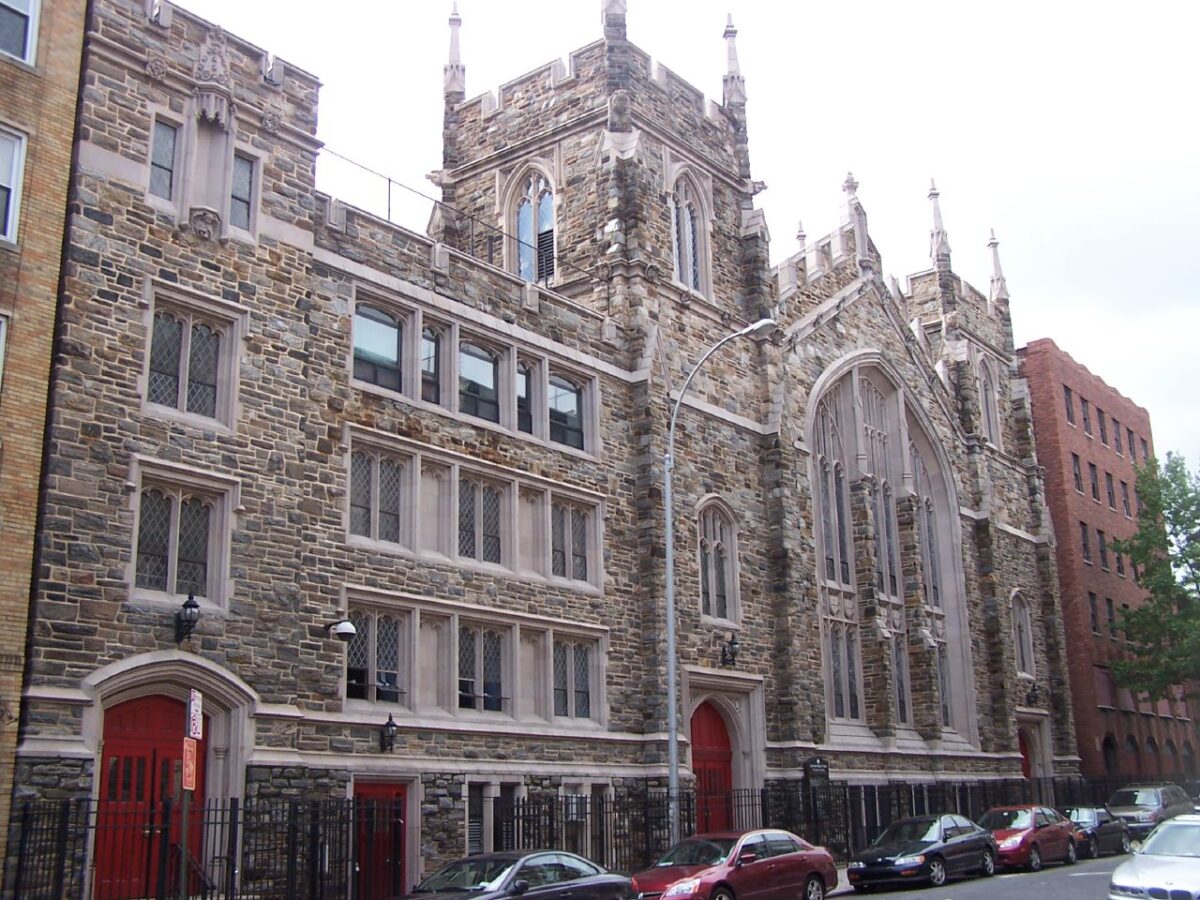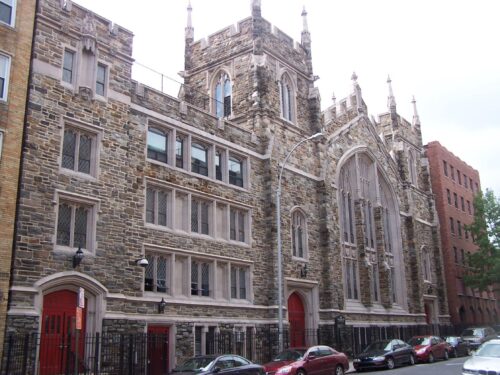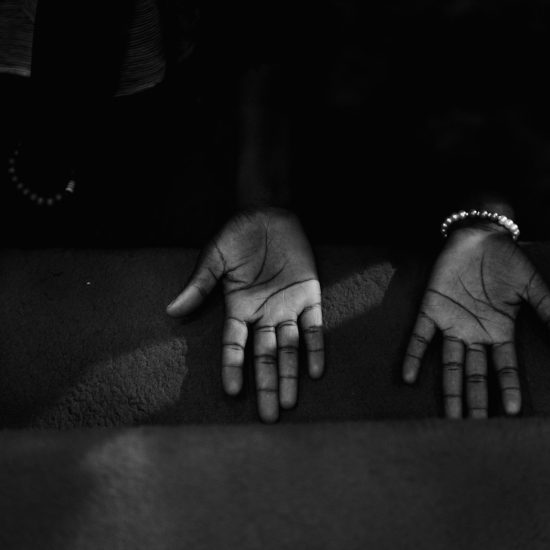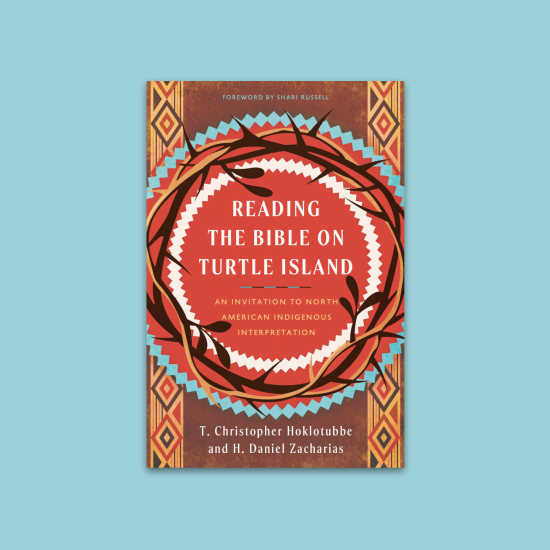
Over its 215-year history, the Abyssinian Baptist Church in New York City has earned a reputation as the flagship of the Black church in America.
Based in Harlem, it became a famous megachurch with the political rise of the Rev. Adam Clayton Powell, Jr. perhaps the most influential of the many men who have led the congregation. Powell, pastor from 1937 to 1972, served in Congress for 26 years.
Among the countless believers making Abyssinian their spiritual home was Eboni Marshall Turman, who came to believe she could become the first woman to be the church’s senior pastor. She rose through the ranks and in 2007 became the youngest pastor ordained in Abyssinian’s history.

Abyssinian Baptist Church in Harlem courtesy of
Dennis / flickr
After longtime senior pastor Calvin O. Butts III died in 2022, Marshall Turman — by then a professor at Yale Divinity School — was among dozens of people who applied to fill the vacancy.
She was full of optimism that she would be chosen. Instead, she wasn’t even a finalist, and is so convinced that sexism was the key factor that she has now filed a lawsuit in federal court accusing Abyssinian and its search committee of gender discrimination.
Along with the church, the lawsuit — filed Dec. 29 — specifically names the search committee chair, Valerie S. Grant, accusing her of behaving inappropriately by asking Marshall Turman questions and pressing issues not broached with her male counterparts.
“Gender discrimination motivated the decision not to hire (Marshall Turman), a fact discussed openly during meetings of the Committee, including by Grant and another Committee member, who said that Abyssinian would only hire a woman as its Senior Pastor ‘over my dead body,’” the complaint states.
The lawsuit seeks unspecified monetary damages from the defendants for “lost wages, lost benefits, other economic damages, shame, humiliation, embarrassment, and mental distress,” as well as an injunction forbidding any hiring-related gender discrimination.
The Harlem church and Grant, who also is a board member of Morehouse College in Atlanta, disputed the lawsuit’s discrimination accusations.
“While she and others were considered for the role because of their impressive backgrounds, she ultimately fell short of some key requirements for the role, where other finalist candidates prevailed and moved forward in the process,” said Abyssinian spokesperson LaToya Evans. In her statement, she said the church is prepared to defend itself against the allegations.
Grant, who described the search process as rigorous, said Marshall Turman was one of 11 people who advanced from a 47-applicant field. While some committee members may have felt she was the strongest candidate, she did not receive enough votes to advance to the next round, Grant said.
Due to varied beliefs on whether women can have authority over men, the Black church broadly has been a minefield for women aspiring to pastoral leadership. Beyond that, the question of who gets to preach from the pulpit has caused deep rifts in denominations and congregations all across Christian America.
Marshall Turman, who did not respond to requests from The Associated Press for comment, researches gender politics in Black churches and related issues. It also is the focus of her forthcoming book.
“I further interrogate theological erasure and violence against Black women in Black churches,” she said about “Black Women’s Burden: Male Power, Gender Violence, and the Scandal of African American Social Christianity” in a September post on Facebook.
“Currently, life is tracking my theory.”
The remaining Abyssinian finalists are men. The lawsuit gives reasons why Marshall Turman believed she stood a real chance of filling Abyssinian’s top job, including being told by committee members that she was the obvious pick and being held in high esteem by Calvin Butts, her ministry mentor.
Grant said the process “was designed to be fair to everyone.”
“I have an issue with people characterizing this process as discriminatory and designed to deny opportunities to women,” she said. “It’s simply not the case.”
The process was the same for every candidate, she said, adding that her job was to tell the committee to set their biases aside. Some wanted an older person, or a younger one; some wanted the candidate to be married and others wanted them to have existing connections to Abyssinian, she said.
She took issue with the lawsuit’s accusations against her own interviewing of Marshall Turman. Grant explained that every candidate was asked a series of common questions, and additional ones tailored to each person were asked as well. Grant said Marshall Turman was asked certain questions that other candidates did not get “because she was the only woman” candidate.
When Butts died in October 2022, after a bout with cancer, Marshall Turman felt that God had called her to the moment.
She wrote an application to Abyssinian’s senior pastorate that reflected her credentials, including a Master of Divinity and doctorate from Union Theological Seminary in New York City, and experience on the Abyssinian staff as a minister for Christian education.
Butts called her the best assistant he had ever had, and the smartest, too, according to the lawsuit.
Marshall Turman was among those invited to apply.
But after not making it to the final round, she alleged in a Facebook post on Sept. 23, 2023, that the hiring process was tainted by secrecy and gender bias. She contended that Abyssinian deacons had worked alongside “an energized group of Morehouse supporters and committee leadership to systematically eliminate all female applicants from the pool of candidates.”
“I write only to underscore that gender bias has no place in God’s house,” Marshall Turman continued in her post. “Moreover, gender bias is illegal in the City of New York in 2023 no matter the prior legacy of the organization involved.”
Among the remaining contenders for the open senior pastor job are the Rev. Dr. Kevin Johnson, formerly of the historic Bright Hope Baptist Church in North Philadelphia, and Derrick Harkins, who was recently working for Marcia Fudge at the U.S. Department for Housing and Urban Development.
For years, as detailed in the book, “Witness: Two Hundred Years of African American Faith and Practice at the Abyssinian Baptist Church of Harlem, New York,” women’s treatment in the church has been an unsettled issue among its members.
In her book, “Toward a Womanist Ethic of Incarnation: Black Bodies, the Black Church and the Council of Chalcedon,” Marshall Turman critiqued the Morehouse social gospel tradition, even interviewing Butts.
In terms of Black women as pastoral leaders, Butts told Turman that at Morehouse the thought of women as pastoral leaders had never crossed his mind. “It was not an issue at Morehouse,” said Butts, in an excerpt from the book. “I just never even thought about it.”
She described finding herself in a world where Black women aren’t listened to, but also one in which their labor is essential to Black survival.
___
Associated Press religion coverage receives support through the AP’s collaboration with The Conversation US, with funding from Lilly Endowment Inc. The AP is solely responsible for this content.






